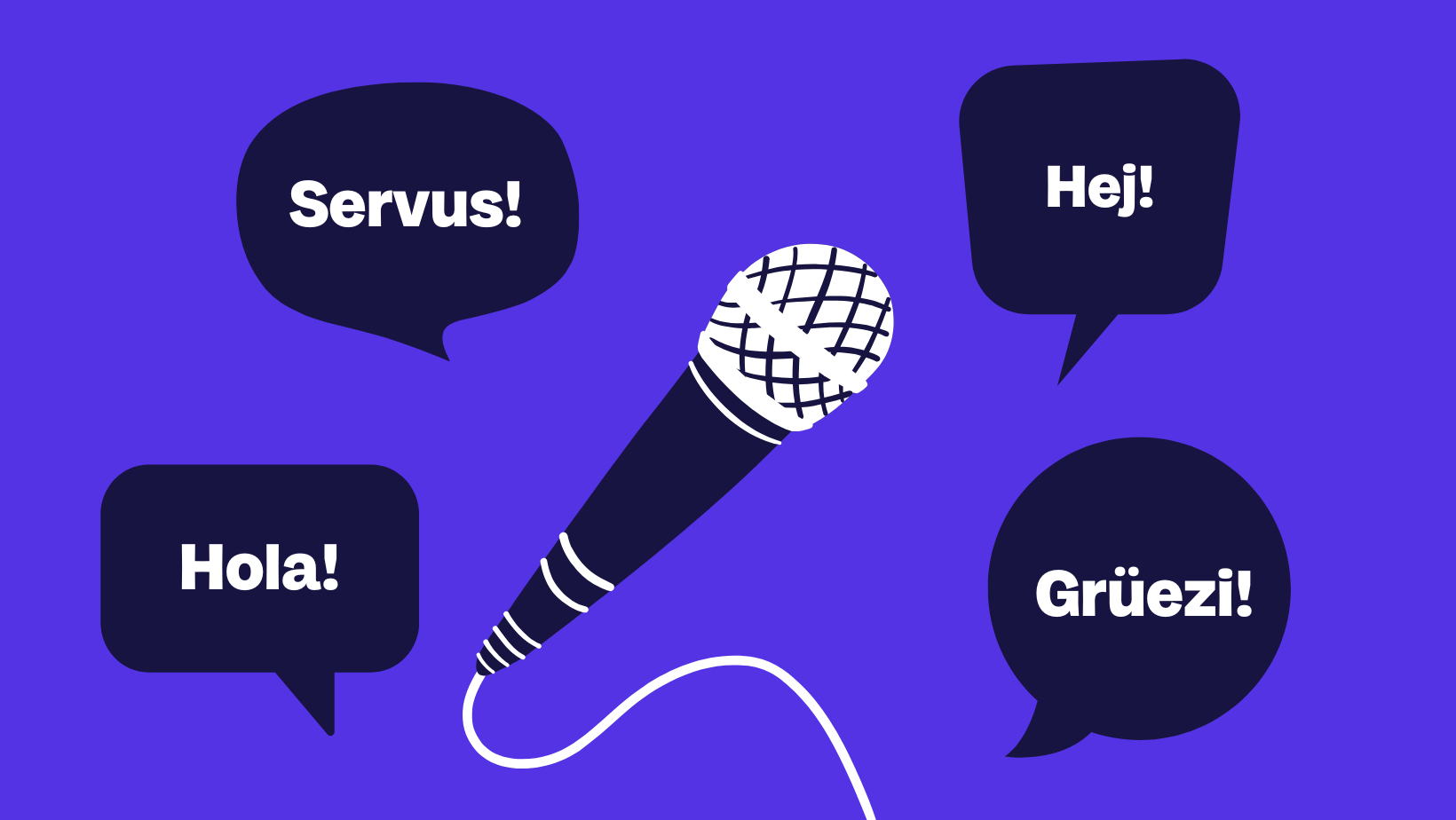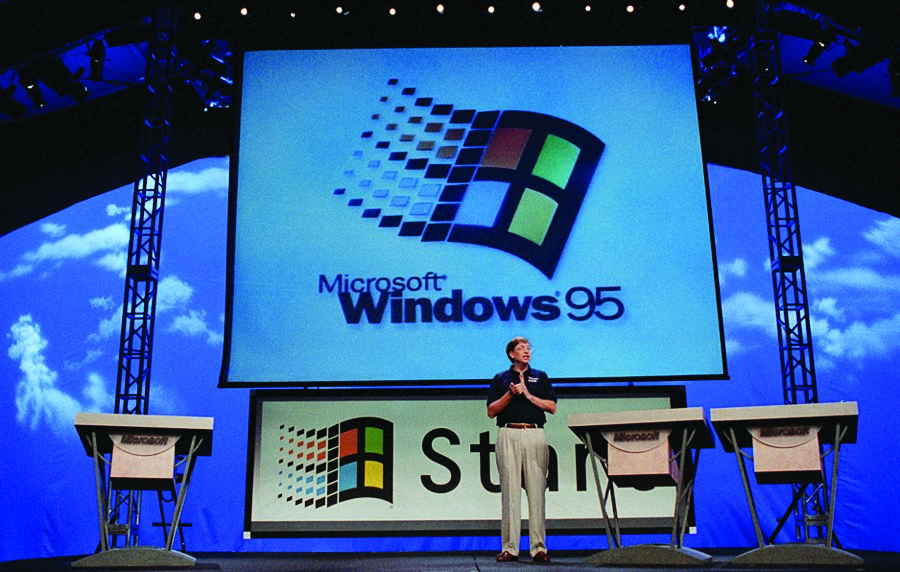50 Years of Lidl: The Hero’s Journey of the Discounter Dynasty
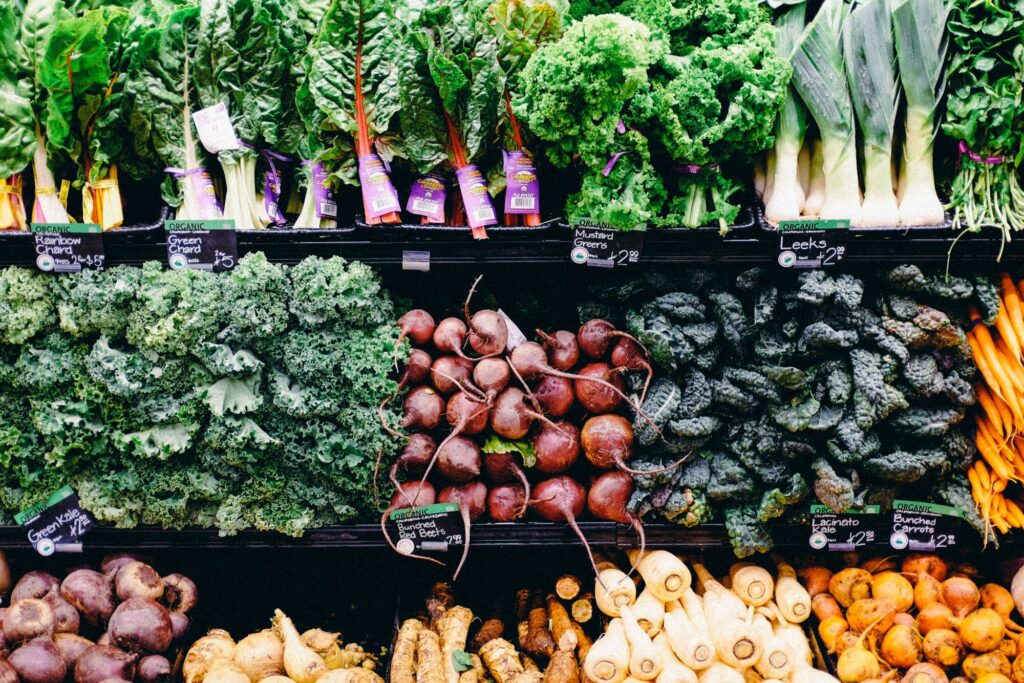
Lidl’s 50th anniversary marked a milestone in German retail history. A lot has happened since the first store was founded. Today, the food giant is one of the leading retail companies, largest employers and best-known brands in Germany.
“We have always remained true to our discount DNA. For half a century, our aim as a reliable local supplier has been to offer our customers outstanding quality, freshness and a wide variety of everyday products at the usual low Lidl price.”
Christian Härtnagel, Chairman of the Management Board of Lidl in Germany De
But how did Lidl make it to the top of the German discounters? Let’s take a look at the grocer’s hero’s journey.
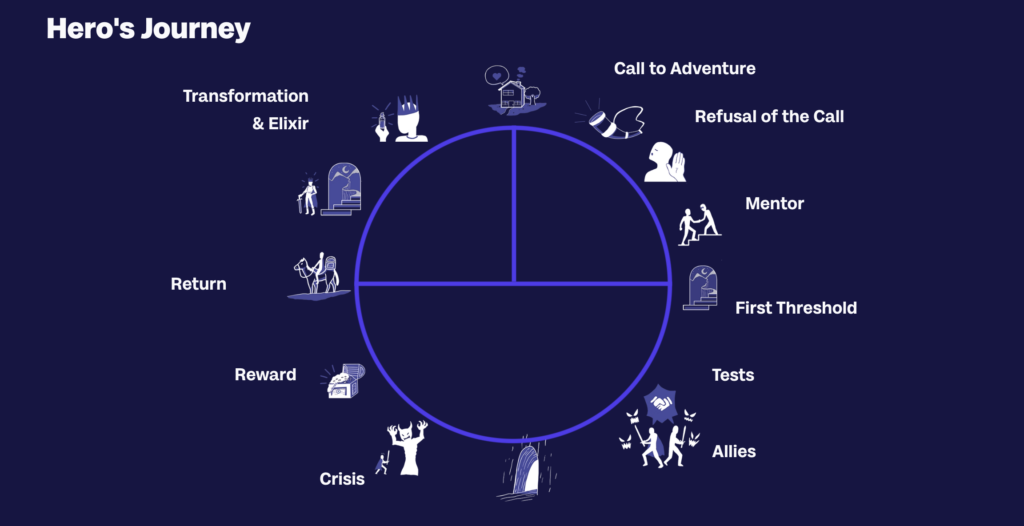
Familiar World – Shopping at the Corner Shop
Pushing a shopping cart through aisles full of shelves, grabbing whatever you fancy and paying at a till at the end of the trip: We take this kind of shopping for granted today. But that wasn’t always the case. Just a few decades ago, customers had to visit a different store for each product. Meat was available from the butcher, bread from the baker and the rest of the daily necessities were bought at the corner store. Between coffee, cheese and canned goods, each item was individually weighed, packed and invoiced by hand. The purchase took a correspondingly long time.
The Reputation – Efficiency as a Business Model
It was 1973 when the first Lidl store opened its doors in Ludwigshafen-Mundenheim and laid the foundations for a new era of shopping. Originally founded in 1930 as a food wholesaler, today’s Schwarz Group expanded under Josef Schwarz in the following decades and opened branches in other German cities. Under the management of Dieter Schwarz, his only son, Lidl refined the discount concept and focused on one thing above all: efficiency. The result was pricing that previously seemed unthinkable and put conventional supermarkets in the shade. The Lidl experience was rounded off by own brands and a varied product range.
First Threshold – Adventure Expansion
In the 1990s, the retail company began its international expansion and opened branches in various European countries. The Group relied on a standardized store model and lean logistics to continue its success at new locations. The concept was not immediately met with enthusiasm everywhere, but was ultimately successful in 31 countries worldwide.

Lidl goes global: Lidl opened its first store outside Germany in France in 1989.
Trials, Allies, Enemies – Between Competition and Dependency
The potential of the discounter model was also slowly recognized by the competition. Aldi, Penny and Co. soon followed suit. Lidl now had to assert itself in a highly competitive retail market. In order to maintain its supremacy, the Schwarz Group built partnerships with suppliers and producers to create efficient and cost-effective transport chains and thus set itself apart from the competition. However, such rapid and massive expansion also has its pitfalls.
Crisis – Quality Problems, Damage to Image and Personnel Policy
From transparency in supply chains to working conditions and environmental impact: Lidl went through a real crisis in the 2000s, when quality problems and a poor image overshadowed the brand.
One of the most prominent points of criticism concerns the transparency of the discounter’s supply chains. A lack of information about how and where the retail giant manufactured products led to concerns about ethical and sustainable standards. The focus was particularly on business practices relating to packaging materials and the handling of food waste.
Lidl also made negative headlines due to questionable working conditions: There were allegations of low wages, unsafe working conditions and a lack of trade union rights for employees. The sad climax was the “informer scandal” – Lidl monitored employees without their knowledge, let alone their consent.
Return – Lidl is worth it
The new slogan introduced in 2008 was also followed by some internal restructuring – a real image change. Lidl was the first food retailer to introduce an internal minimum wage and invested heavily in expanding its human resources work.
The discount retail giant also published its first sustainability report in 2018. Since then, public relations work has focused on the topics of transparency, environmental protection and equal rights. The company wants to help reduce food waste and promote sustainable procurement practices with initiatives such as the Lidl rescue bags and special supplier dialogs. In its Code of Conduct, the retail giant defines fundamental rules of conduct to which the company is committed. At the same time, Lidl sets out its expectations of contractual partners and suppliers.
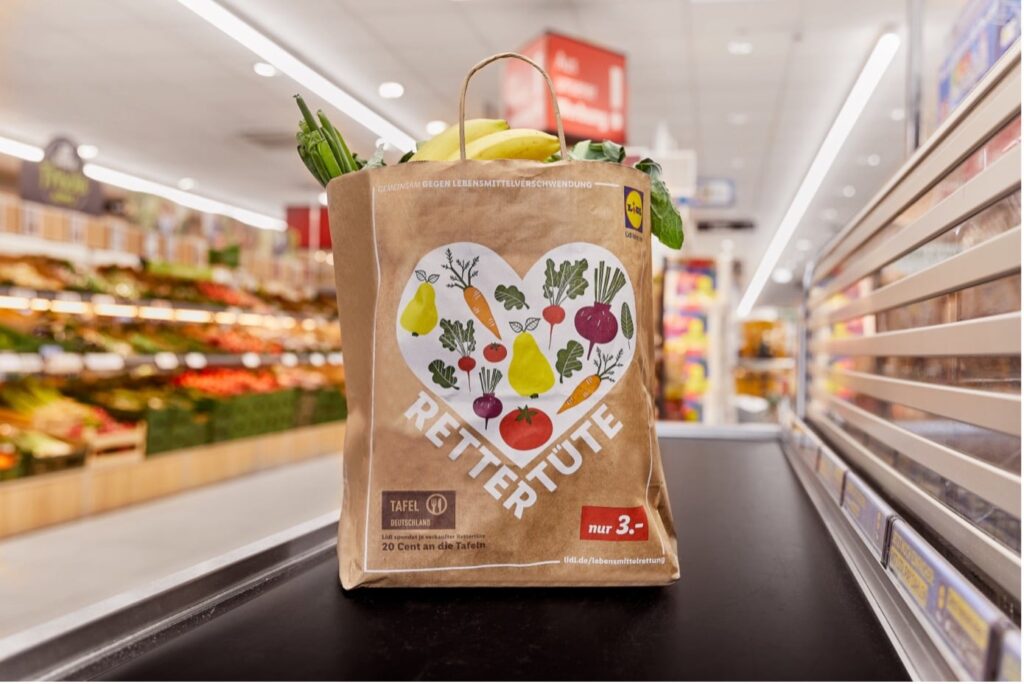
Since 2022, the rescue bags, filled with fruit and vegetables that no longer look nice or have damaged packaging, have been gradually moving into all German Lidl stores.
The Elixir – A little bit of Everything and a lot of Communication
Today, Lidl is one of the largest discounters on the market and operates thousands of stores worldwide. From influencer collaborations and festival stores to their own fashion collection. The motto: There is nothing that does not exist.
And to ensure that everyone knows this, Lidl spares no expense or effort when it comes to public relations. The food giant is one of the largest advertisers in Germany. Last year, the Schwarz Group spent a whole 175.601 million euros on its good image. The media spectacle surrounding the 50th anniversary was correspondingly opulent.
Helene Fischer, Barbara Schöneberger and Co.: Lidl relies on well-known faces for its anniversary
With innovative concepts such as Lidl Plus, strong brand communication and an extensive product range full of original own brands, Lidl always tries to be one step ahead of its competitors. Es bleibt spannend, was die Zukunft für den Discounter bereithält.
Find out what the hero’s journey of another food retailer looks like in our close-up of EDEKA.
Share this article
Related articles
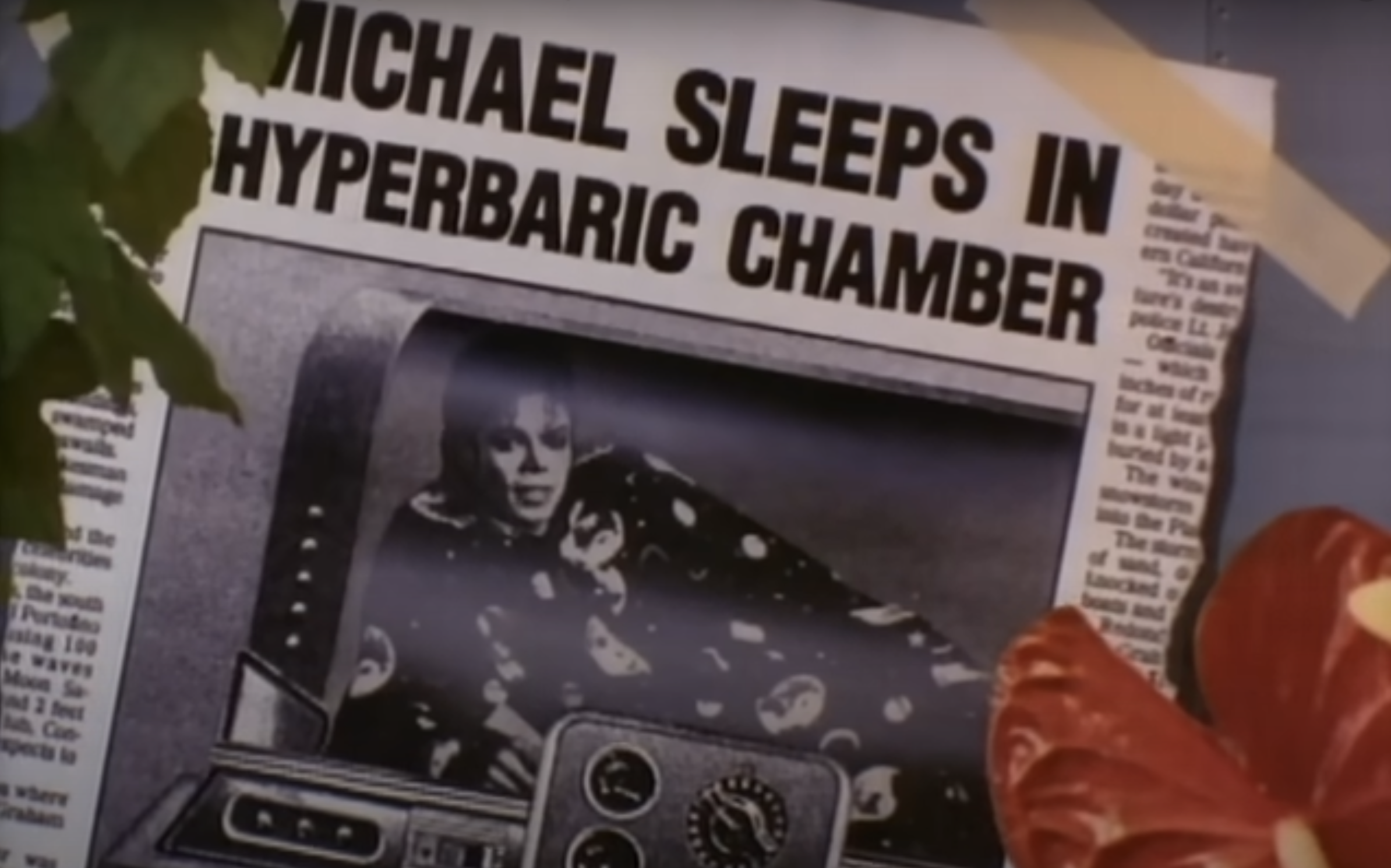
8 April 2025


